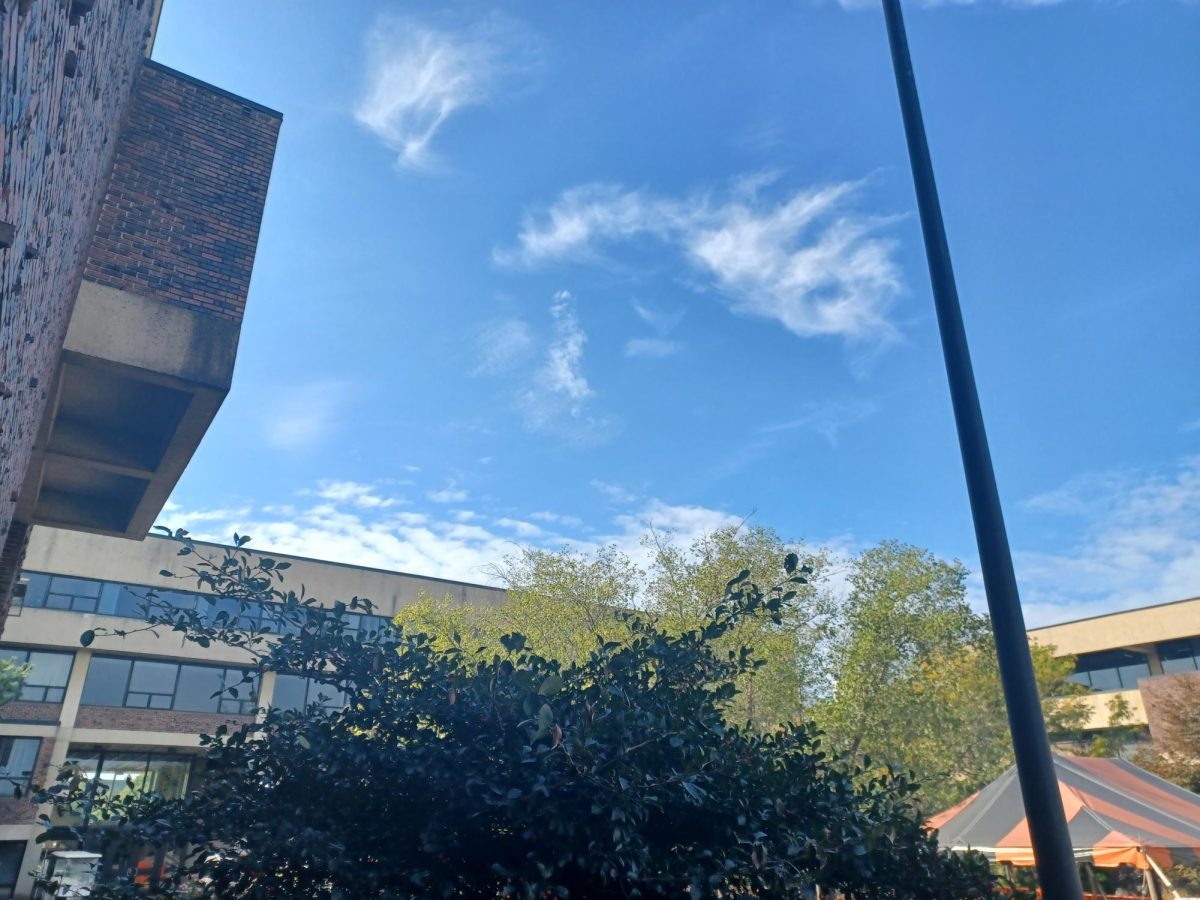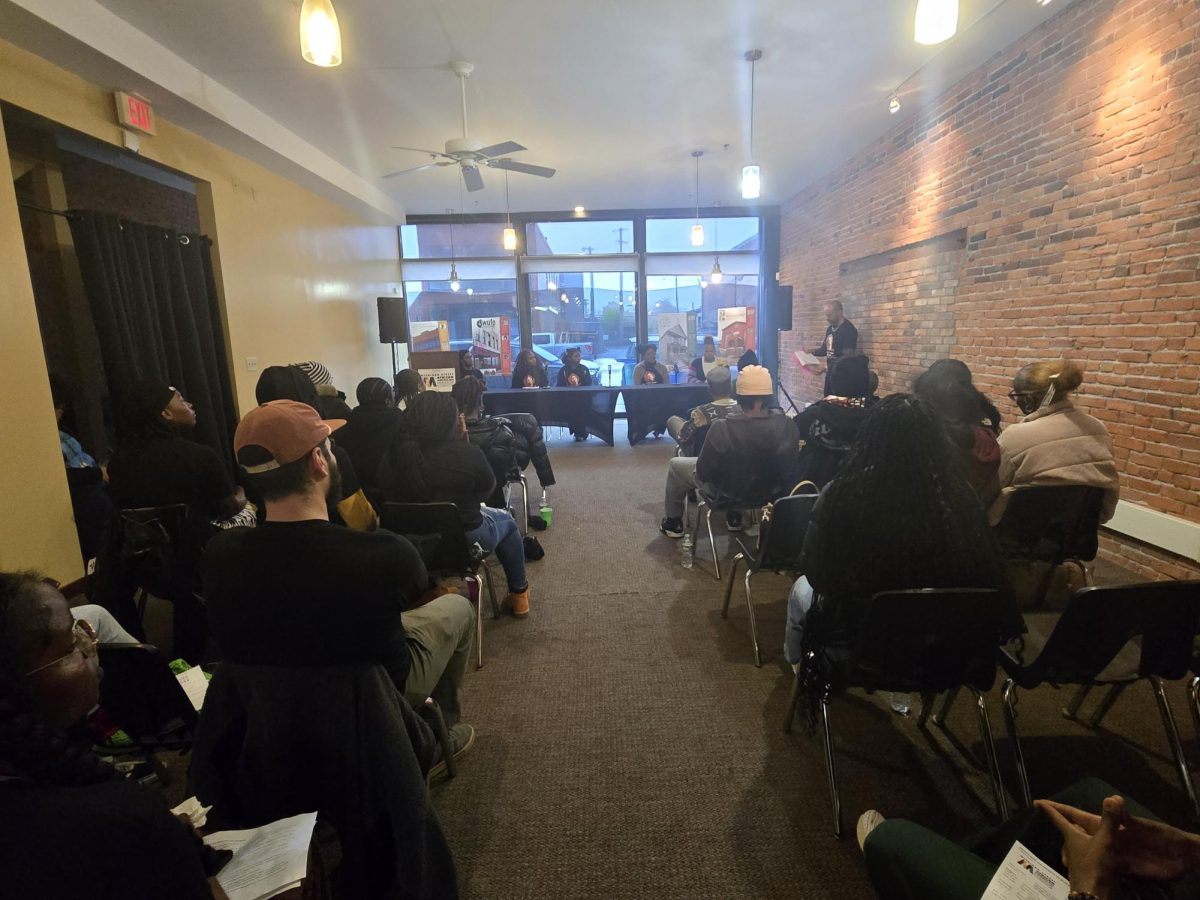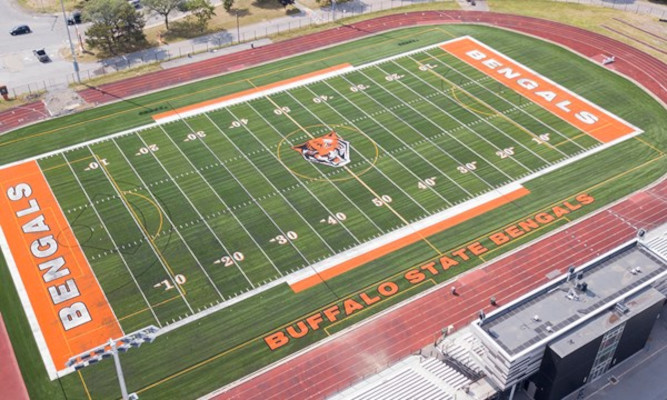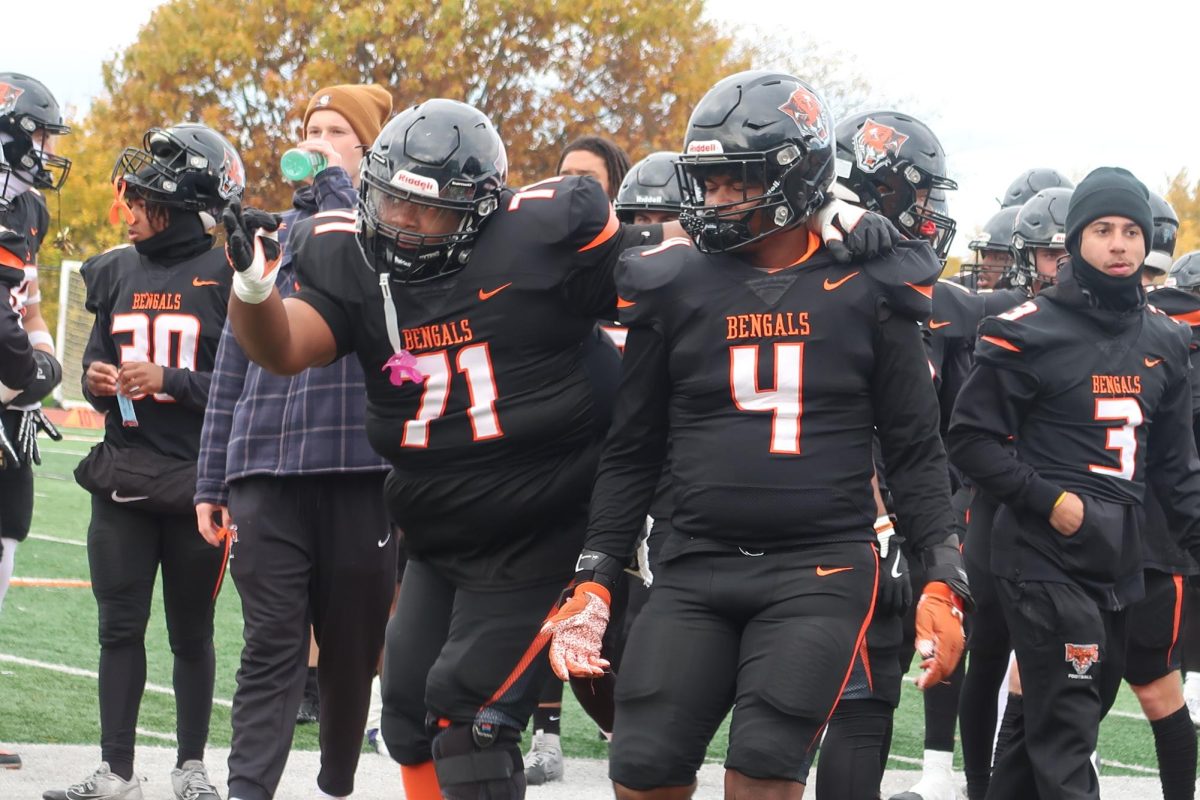After taking a brief hiatus from interviews, I have returned to interviewing professionals in the field of higher education.
Dr. Amitra Wall is the Interim Provost & Vice President of Academic Affairs at Buffalo State University. Her career in higher education commenced with a role as a Sociology Professor. Now, in her current role, Dr. Wall possesses a number of creative ideas to continue the progress that is occurring at Buffalo State.
In this interview, she provides insight into her world: a world that involves sociology, academic affairs, and innovation.
This interview was edited for clarity and brevity.
1) As the current Provost, how might you describe your approach to the position? Might you characterize your approach as more in line with the status quo, or in favor of pushing against conventionality?
I see myself as a Servant leader. I do not want to have a title to just say that I have a title. I take great responsibility in having this role. I do what I expect others to do. Since higher education is changing, we must do something differently. I am in favor of rethinking higher education. When we think of formal education in the seventeenth and eighteenth centuries, formal education was limited to wealthy men and was later expanded for white women in the early nineteenth century. The structure of higher learning has largely remained the same even though our disciplines, students, the craft of teaching and learning have been evolving since then.
As educators, we must go beyond theory and just teaching in the classroom. We need to think of experiential learning while considering the needs of the workforce in the community. College is not about checking off things: take this class, get your grade and graduate. We need to consider what it means to educate the whole student. It’s beyond the four-year and master’s degrees. We need to think of the students who are not just traditional students coming from high school. Veterans and new Americans in and outside of this area demands a review of our curriculum and program offerings. We also need to consider the fact that people are learning beyond college: lifelong learners who may want to earn a smaller credential.
2) As the current Provost, what is your personal vision for Buffalo State? How do you think the circumstances of the past several years, including the COVID-19 pandemic, shape that vision?
We must rethink what we do, particularly in academic affairs and with our curriculum and the faculty. When I was first named interim Provost, I had some goals, including looking at and seeing what we do well as well as what we need to work on. We should look at restructuring our departments and units to reflect enrollments. There are some majors that could really grow and expand if we invest in them. For example, I would like to invest in the faculty by increasing the diversity. We also need to look at the programs that we either need to revise or consider eliminating.
My goal for academic affairs is to focus on educating our students. Our institutional learning outcomes include cultural fluency, urban education, scholarship, creative activity, and ethical reasoning. We are here to educate our students; it’s about our students, the community and the employers. I want to build an effective and efficient structure to accomplish this. This means that we need to invest in our students – the struggling, the honor, and the average students. Tutoring and academic intervention are examples. Increasing the research output benefits the students in so many ways. When faculty can consider and utilize the best practices and innovations in the discipline, teaching becomes stronger. When community partners and advisory boards are involved, the community becomes stronger. I want Buffalo State to be distinctive because of what we offer and be the first choice for our students.
3) What do you think your primary goal as the provost is? Please provide insight on said goal.
I want to refer to something that I said when I had my restructuring meetings last week. I’m just going to read a quote:
“Excellence gets reduced to acceptable. So just think of belonging acceptable. It doesn’t seem worth the sweat if you can get by with adequate. And what you buy into adequate mediocrity is only a breath way. It is human nature to just get by. Either the standard is maintained at top quality, or you can forget it.”
I want us to be excellent. What does that mean? It means a whole lot of things in Academic Affairs. It means that we are here for our students, and that we need to respond to our students. We need to expect excellence from our students and ourselves. The students who are here are our responsibility, and we need to treat and consider these students who are in our classrooms and programs as if they were our own children. That is the lens I want to see and a lot of the students who are here reflect who I was when I was a student.
I grew up in Fort Worth, Texas: I was raised by a single mom who emphasized the value of education. As a family, we struggled. The constant was the lesson that education, is a way out of poverty. Having professors who believed in me and saying you could do this, I started to believe that I could do. This is what I want our students and each other to hear because once someone hears that they can do something and cand add value to a space, then the person will begin to believe and act accordingly.
During the Masters’ degree program, it was the chair who said: “Amitra, you know what? You might consider being a GA graduate assistant and teach a course.” I never considered this before because I was shy. This opened the door to my interest in teaching. In 2000, I came to Buffalo state as a professor. I have been afforded the opportunity to move into administration. I can make a difference in the students’ lives in a different way. I love what I do. My desire is for all faculty and staff to love what they do. I want students to love being at Buffalo State.
We want to increase enrollment; we want to retain our students. We want our students to come here.
4) What would you suggest is the most exciting aspect of the position as the provost?
I think it is the challenge. I have been here since 2000, and people often state: “you know, 25 years ago we had 12,000 students, are we ever going to go back there? Probably not that many. However, we can be Buffalo’s state university. The possibility of being able to extend who we are beyond 1300 Elmwood is what excites me the most. The ability to work with so many people, including students, staff, faculty, community members, and alumni.
5) Outside of your role as the provost, what are some activities you engage in?
I don’t want to say I’m in love with my discipline or that I’m a nerd, but I will. I like my discipline, which means I still am involved in two of my associations. I’m a certified sociologist, which means, I know the theory behind sociology. I’m also out in the community doing work and because of that, I am on this one association, where I can accredit sociology program from around the country and internationally. I am in a section that’s called sociological practice and public sociology for the American Sociological Association. I enjoy meeting people who are sociologically minded.
Also, I absolutely love reality TV. In 2000, I caught a glimpse of the show Survivor, and that show helped me stay balanced. I have watched it every season, Survivor starts this Wednesday evening at 8:00 PM on CBS.
As for Big Brother, it’s been on since July. I love Big Brother, Survivor, Amazing Race and other types of reality shows. I do like hanging out, of course, with family and friends. Reality TV is an escape for me. I’d watch Hallmark Channel, but there’s not enough hours in the day to watch that.







